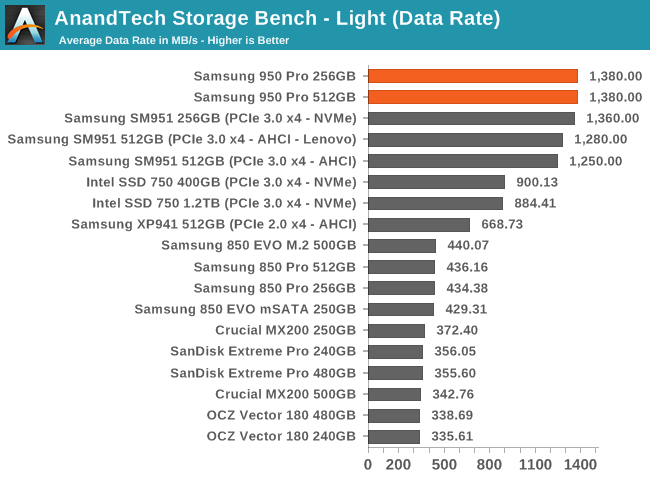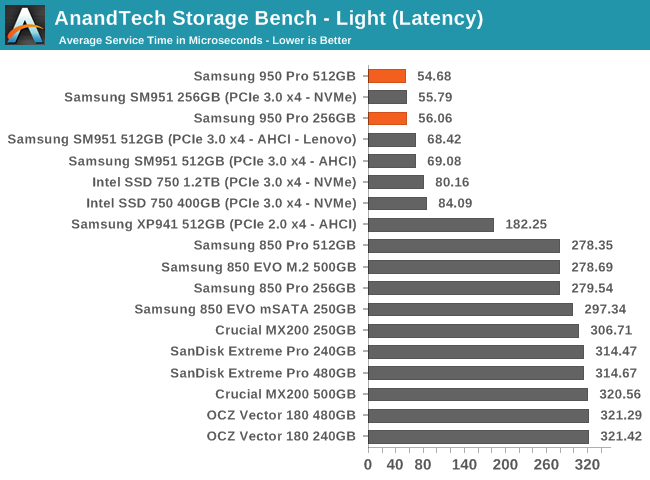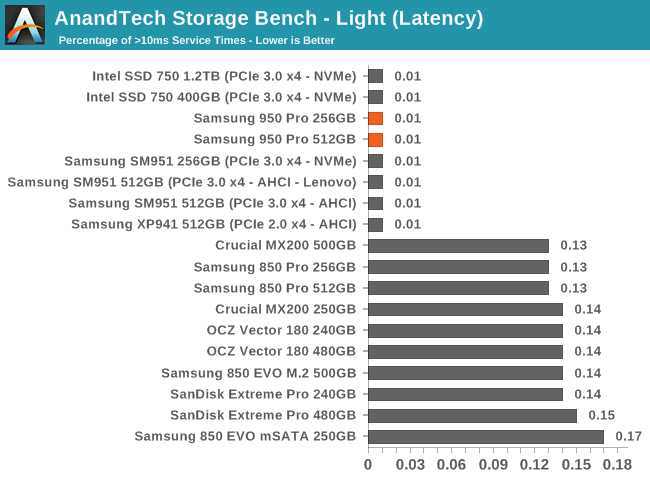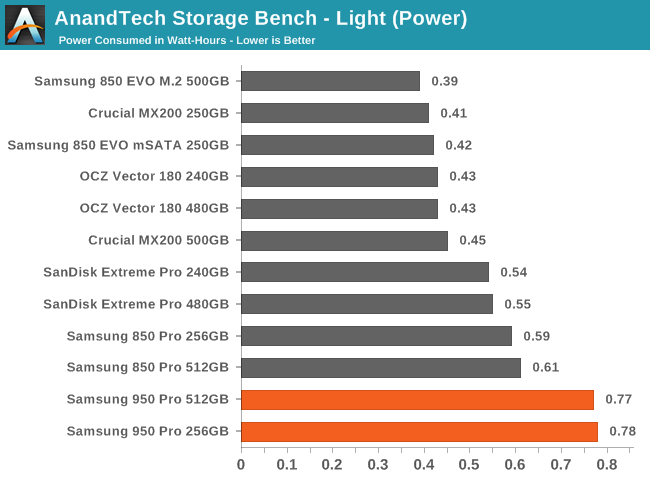The Samsung 950 Pro PCIe SSD Review (256GB and 512GB)
by Billy Tallis on October 22, 2015 10:55 AM ESTAnandTech Storage Bench - Light
Out Light storage test has relatively more sequential accesses and lower queue depths than The Destroyer or the Heavy test, and it's by far the shortest test overall. It's based largely on applications that aren't highly dependent on storage performance, so application launch times and file load times are what dominate this test. Details of the Light test can be found here.

The Light test starts to show a distinct advantage for NVMe, and the Samsung UBX controller is performing much better than Intel's SSD 750.

The three Samsung NVMe drives have the lowest average service time and the SATA drives are all looking quite slow by comparison.

The PCIe drives are all very good about keeping latency outliers to a minimum, but none have yet managed to complete the entire test without any request taking more than 10ms.

Despite stellar performance, the 950 Pro's power efficiency is poor. If our system could make use of some power management capabilities this situation could be very different, but for many consumers this is just the way things are for PCIe drives. The lack of power management support may be slightly helping some of the latency scores, as transitioning between power states usually requires a short interruption in service.










142 Comments
View All Comments
bill.rookard - Sunday, October 25, 2015 - link
VERY interesting. Of particular note is the Crucial MX200 - an older drive, and connected via SATA which trades blows back and forth with the newer PCIe - nvme based drives. Wow, good stuff.Deders - Thursday, October 22, 2015 - link
I think it was only PCIe drives that had long booting times like the Intel 750.Gigaplex - Thursday, October 22, 2015 - link
These are PCIe drives.Deders - Friday, October 23, 2015 - link
I mean slotted drives as the drive controller has to load from the deviceKristian Vättö - Thursday, October 22, 2015 - link
I have a 256GB 950 PRO in my system (AsRock Z170 Extreme 7) and boot time is about 8 seconds with ultra fast boot enabled in BIOS/UEFI.Jacerie - Thursday, October 22, 2015 - link
Why would you go on about how awesome Skylake and the 100 series chipset are for PCIe connected drives and then use a Haswell chip and a Z97 board for the test rig? Time to go back to the bench.Billy Tallis - Thursday, October 22, 2015 - link
The Haswell system is what I've got on hand to test with, and it's what allows my results to be directly comparable with the reviews from earlier this year.Skylake gives you PCIe 3 from the PCH, but on the testbed we always use an x16 slot directly off the CPU for PCIe SSDs, so we don't need Skylake to run the drive at PCIe 3 speeds.
Jacerie - Thursday, October 22, 2015 - link
Will you be posting a follow-up to highlight any controller differences with the newer hardware?MrSpadge - Thursday, October 22, 2015 - link
This is not a SATA controller we're talking about, it's PCIe. And there we have hardly seen any differences between different implementations over the years.hansmuff - Thursday, October 22, 2015 - link
May I humbly request an addition to the review to show performance AND issues when using a PCI Express 2.0 to M.2 adapter on an older platform like the P67A?